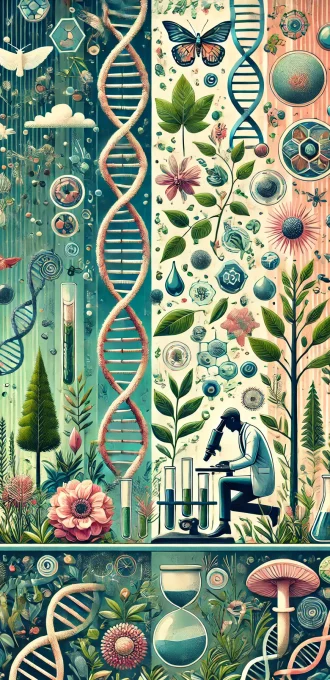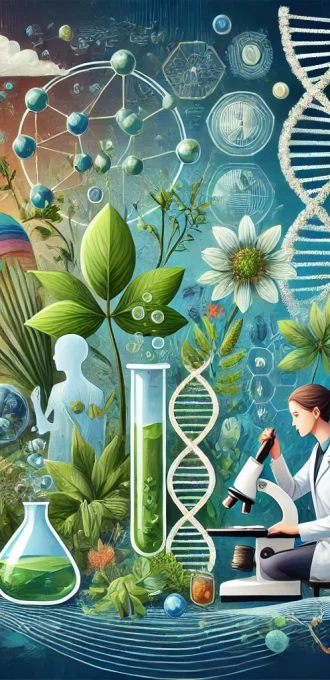Responsible for assessment and education in the TC-SNV life and natural sciences core curriculum
Serti Ismail
✉ smail.serti@univ-msila.dz

Within the academic framework, the Natural and Life Sciences major is a cornerstone in building a comprehensive understanding of the biological and environmental sciences. It is the discipline that enables students to gain a deep and comprehensive insight into life in all its forms and levels, from microcells to large ecosystems. Throughout your studies, you will be exposed to a variety of sub-disciplines such as biology, ecology, geology and biochemistry, giving you a strong and multidimensional knowledge base.
This academic diversity fosters critical and analytical thinking and prepares students to deal with the environmental and health challenges facing humanity today. In addition, the Natural and Life Sciences major opens wide horizons in the field of scientific research, as students are trained in laboratory and field research methodologies, which enhances their abilities to contribute to scientific development through innovation and new discoveries.
Thanks to this integrated academic training, graduates are qualified to pursue diverse career paths, whether in scientific research, teaching, or working in the fields of medicine, pharmacy, and biotechnology, making this specialisation an essential tributary to the advancement of science and humanity.

Scientific Research: Graduates of Natural and Life Sciences have significant opportunities to work in research institutions or universities. They can contribute to research projects related to biodiversity, environmental protection, or new discoveries in biological sciences.
Medicine and Pharmacy: Natural and Life Sciences form the foundation for medical and pharmaceutical sciences. Graduates can specialize in postgraduate studies that qualify them for medical professions such as human medicine, veterinary medicine, or pharmacy, where they contribute to the development of medicines and treatments.
Environment and Natural Resource Protection: Graduates of this field can work in government institutions or non-governmental organizations (NGOs) concerned with environmental protection and the preservation of natural resources. This sector includes monitoring environmental changes, managing nature reserves, and working on sustainable development projects.
Education: Specializing in teaching sciences is one of the most common career paths. Graduates can work as teachers in secondary schools or as faculty members at universities, where they pass on their scientific knowledge to future generations.
Food and Agricultural Industries: Research fields related to food and agriculture require experts in biological sciences. Graduates can work in improving agricultural production, ensuring food quality, or researching sustainable environmental and agricultural solutions.
Biotechnology and Industrial Sector: Biotechnology is an advanced field that requires a strong background in biological sciences. Graduates can work in biotech companies and pharmaceutical industries that develop products based on biological processes.
Laboratory and Forensic Analysis: In hospitals and forensic laboratories, specialists need extensive knowledge in biological and chemical analysis. This field demands high-level skills in conducting laboratory tests to detect diseases or verify evidence in criminal investigations.


